|
A magical day in the woods for a leadership forum of 50 leaders from POhWER, an advocacy charity. The aim was to connect the executive team, management team and team leads with each other, and to work together on the organisation’s challenges for the year ahead. Client: POhWER
Location: Woodland, South London Group size: 50 Who they are POhWER is a charity set up to effect change by providing advice, support and advocacy to people who experience disability, vulnerability, distress and social exclusion. Their context and challenges Prior to working with us, there had been a lot of change. People had strong feelings about it and in some parts of the organisation there had been resistance to the change programme, which had led to a polarised culture and tension among certain groups. A group of staff were not exercising agency and were pushing decisions and solutions upwards. This meant that people were not working together to address challenges. In addition, the cost of living crisis was putting pressure on some staff and that, combined with the continual drip of bad news in the world, was exacerbating mental health issues. POhWER came to us to help them start to change mindsets and culture. An offsite retreat based at a yurt village, for a fast growing charity working in the field of sustainability and the built environment Client: UKGBC - a charity working in the built environment
Location: Yurt Village, West Sussex Group size: 26 Who they are The UK Green Building Council is a membership organisation that aims to radically transform the built environment. This is a growing sector: there is a lot of work to do, and the team was growing. Their context UKGBC’s team had been through a very busy time and were feeling stretched. Plus there had been some instability - several new people had joined, and several key people had left, and the team had been challenged by this. There was a feeling that screen-based remote and hybrid working was creating barriers and as a result the organisation was missing out on creative conversations, people were not collaborating in the way they once were, and some people felt frustrated and that they couldn’t bring their whole selves to work. There was also an issue with a few people being quiet and not speaking up in meetings. Their challenge “How can we support each other, feel connected, bring our true selves to work and be motivated/fulfilled?" The aims and objectives UKGBC wanted their team to reconnect, regroup and develop as a team, and be reminded that their organisation was a great place to work. They wanted a meaningful programme to give them:
If you are a CEO, senior manager, or team leader seeking to invigorate your team, make meetings, away days or offsites more effective, or drive impactful change, an external facilitator can be your key to success. The other day we were asked by a prospective client - an HR director at a large travel company - why they should use us to facilitate a team building programme for their middle managers, rather than just do it themselves.
The company had been going through a lot of change and they felt middle managers needed supporting and enabling. Their need was for managers to get to know each other better and develop as a group so that they would work together better, and bring the benefits of that to the whole organisation. The HR director asked us for help with reasons why they should hire someone externally because she knew she would be asked by the CEO. So this blog post sets out reasons why to use an external facilitator - whether for a team away day, strategy session or managers development programme - and when it is a good idea. Wondering how to get your team out of a stuck pattern or how to boost collaboration and move everyone forward towards a goal? Try using Forcefield Analysis, a framework for looking at the factors that are driving or hindering you. We use it in the woods with our clients. It'll help you make faster progress. The other day we were working with a research group from a London university. The leader was frustrated that the same small core bunch of people came to meetings and away days, while the rest of the research group - about 25 people - didn’t show up or engage in any activities.
She came to us to try something different, to catalyse a more connected and engaged group. She wanted people to see the group as a real resource. And she didn’t want to be the only person driving things. We decided to experiment with a new (to us) development tool in the outdoor team day we ran for them. Forcefield Analysis was created by psychologist Kurt Lewin in the 1940s, it is a process for working out what’s driving your team and what’s holding you all back - whether on reaching a goal, or working together better. The theory is that you make faster progress by weakening and removing the restraining forces than by trying to do more driving things (especially when everyone is already overloaded.) Conflict in teams is an inescapable part of working life. Team conflict can affect morale and productivity but it doesn't have to cause permanent rifts. Here's how Nature can help you rebuild trust, boost collaboration and bring your team back together when there is conflict in your workplace. Photo by Yan Krukau on Pexels A team is only as strong as the relationships among its members, and like most connections teams can have their ups and downs like a rollercoaster ride. Even with the best of intentions, sooner or later clashes between team members are inevitable because working life creates conflict by its very nature. Decisions may not have everyone's agreement, projects don’t always run smoothly, people get promoted or passed over. Different personalities bump up against each other and people can be triggered by what seems like the smallest of things.
This year we’ve been working with various clients at different stages in their life cycles - from startups with ambitious growth plans, to established large organisations that are implementing structural change. For many clients, the issue of conflict and how to handle it is a common theme. For one charity, people across the organisation were angry about a restructure and were not holding back on telling leaders. For another, a startup, it was the opposite. People were avoiding saying what they really thought and were only being nice to each other. Especially when senior leaders were present. Workplace conflict is a tricky one. It feels uncomfortable and if not handled well, it can cause all sorts of issues - exclusion, scapegoating, communication breakdown. You can get stuck there. According to Tuckman's forming, storming, norming, performing model - team conflict is a necessary and important stage that teams go through as they work through frustration and individuals establish their own authority - it can be transformative if handled well. How one UK business is making itself even more environmentally friendly by giving Nature a seat on the board. Could you do the same? pic Cottonbro Studios/Pexels A couple of weeks ago I went to a really inspiring talk by Mika Peck, Professor of Conservation Ecology at Sussex University, about the Rights of Nature.
While many of us are concerned that human activities are causing runaway climate and ecological breakdown, there is a global counter-movement that is trying to rebalance things by adopting a different worldview - from one that sees Nature as our property, to one where Nature has its own rights. Already a number of rivers and ecosystems in 24 countries from the USA to New Zealand have been granted personhood in law. Ecuador in particular made history when it changed its entire constitution to enshrine Nature’s rights. When that was tested in 2021, the courts revoked mining licences in protected regions. How can you and your team create a workplace culture you can be proud of, that makes you all want to come into work every day and that brings out the best in your team? The other day I was chatting with a director of a small charity. He was reminiscing about how his whole team used to cook and eat lunch together at his previous place of work. It was the best place he had ever worked, he said.
"I’m not sure whether it was a great place to work because we did stuff like eating together, or because we did stuff like that, it became a great place to work," he wondered. It is a good question. A bit like the chicken and the egg, when creating a great workplace culture, what comes first? There are two things we hear time and again from clients that are affecting the culture they want to see in their organisations:
Learn our top 5 tips for creating an inclusive team building experience that integrates values, reconnects teams, and improves wellbeing in our Free guide.
We’ve all been to team building events that rate way too highly on the cringe-scale, aren’t enjoyed by the majority of the attendees, and leave no lasting impact other than a hangover and a few embarrassing memories. Sometimes they are more akin to a stag or hen do, and follow an all too predictable formula: activity + food + booze.
In today’s diverse and inclusive workplaces these kinds of activities may no longer be appropriate or right for your team. Have you read anything by ex-VP of Twitter in Europe, Bruce Daisley? Daisley left Twitter well before Elon Musk bought it, and is now writing and consulting on workplace culture.
At a culture conference I attended a few weeks ago, Bruce spoke about resilience, and about gentle moments of connection and shared joy as ways to build a strong cohesive culture in hybrid workplaces. Something he said really struck me: the best way to build cohesion in a team is when we become human in each others’ company. "This is the way to do our best work together," he said. This really resonated. Our experience at School of the Wild - and backed up by the research - shows that you’re never more human than when you’re in Nature. At School of the Wild, we’re driven by one idea: nature brings out the best in people.
All our programmes are based on the principle that connecting people and the world begins with making nature itself the meeting room. Studies have shown that outdoor learning correlates with: • greater group bonding and cohesion, • levelling of hierarchies, • enhanced learning outcomes, • increased creative thinking • greater well-being, • more concentration, • better behaviour, • improved memory and confidence. Plus the best conversations and ideas don’t happen in meeting rooms! And to paraphrase Einstein: you can’t solve problems in the same place you created them. School of the Wild is an experimental business school. We're on a mission to help organisations work with nature to both help their teams perform at their best, and to inspire a more regenerative relationship with the earth, as part of an ongoing strategy to develop.
Everything we do at School of the Wild is designed to get you out of the office to reconnect with each other, and be inspired by nature to make positive change. Our programmes fuse creative and practical skills with facilitated campfire conversations to help you strengthen your connection to the land and to each other, leaving a lasting impact on the way your team thinks, feels and works together.
(And why taking your team into the wild can help you figure it out)
photo by Scott Evans on Unsplash
Most organisations aren’t doing enough on climate change. And the chances are, even if you’re already working hard to reduce your organisation’s environmental impact, there’s still more you could do.
Even as we see the immediate effects of climate change growing all around us (in the form of wildfires, unseasonal weather and flooding) the coronavirus pandemic served as an unwelcome distraction. The reality, though, is that the earth is warming and that climate change can no longer be avoided. What we can do is to avoid its most devastating effects: but that will take significant, decisive and rapid action to achieve. At School of the Wild, we run offsite team building and leadership development programmes outside, on purpose. Here's why nature brings out the best in your team.
At School of the Wild, we’re driven by one idea: nature brings out the best in people.
We believe that reconnecting with the natural world is the one of the best ways to reconnect with each other, freeing your collective potential and growing together. It’s where many voices become one mind. The latest research backs this up, showing that spending time in nature:
Time in nature boosts your team performance by helping individuals grow and develop, and build meaningful bonds with each other. We know this works. So we run offsites and team building programmes with a difference: we support you to solve concrete problems and realise your team’s potential in these challenging times, through:
Looking for memorable way to energise and motivate your team? Here's our guide to the nine best outdoor team building activities in London that will help build people and culture in 2024.Pic courtesy of RODNAE Productions on Pexels Gathering your team in nature builds trust, belonging, and engagement in a way that helps employees connect with each other and the bigger picture. It’s a well-known fact that businesses live and die by their people. They are the heart, mind, and soul of your organisation, and truly are your greatest asset.
Continuing the analogy, much like a human body your workforce has to be nurtured and cared for, otherwise things will start to break down or give up altogether and pretty soon you’ll be immobile. The best way of doing this? Foster a sense of belonging. Your people aren’t drones and they shouldn’t be sitting in silos disconnected from each other. People want to make real connections when they go to work. It’s where they spend half their time, after all. Meaningful relationships don’t just make the day go faster for your staff, they actually boost business. On average, companies with high connection scores had 32% higher ratings than their competitors, were 14 times more likely to be named on a “best places to work” list and were 25% more likely to be recommended by current employees to their friends. So, how can you achieve this? It’s unnatural to force genuine connections, but a basic understanding of psychology shows that finding common ground between people is the fastest way to start growing these connections. This has probably happened to you before, if you have bonded with someone over a hobby or shared opinion. One of the best ways to increase trust, belonging and engagement is through team building activities in the great outdoors. Spending time together in nature is shown to have many benefits for developing relationships and connection. A lot of research shows that time in nature leads to improved communication and collaboration between individuals, provides a deep sense of purpose and strengthens an individual’s environmental values. It is also shown to dramatically increase creative problem solving, by as much as 50%. However team building in nature often focuses heavily on competitive pursuits. Why Giving and Receiving Feedback Matters for Your Team’s Development — and How to Do This Well31/10/2022
In this article, we explain the benefits of effective feedback for employee and team development and why it is an important tool for leaders. We also debunk some commonly-held misconceptions and explain how to go about providing helpful, constructive feedback for your team using tools such as Johari Window and CEDAR framework. picture by Gustavo Fring on Pexels. “Feedback is the breakfast of champions.” Do you see feedback as important to the development of your team? Are you comfortable giving feedback to your team — the good and the bad?
How do you react when you’re given feedback on your own performance and behaviour? You might not realise it, but feedback is critical in a business environment because your employees need and want feedback in order to grow and improve. According to one survey by Gallup, 69% of employees say they would work harder if they felt their efforts were recognised through feedback. However, according to a poll commissioned by Interact, 37% of managers say they are uncomfortable giving feedback, and 21% avoid giving feedback at all when it’s negative. The truth is we all want feedback, but none of us really want to hear it when it’s difficult, so providing your team with clear, constructive, actionable feedback is an important skill for leaders. It’s also important that you’re able to handle receiving feedback yourself and taking it on the chin when it’s not what you’d like to hear. This way, you can be an example to your team by using feedback positively and constructively. Feedback is valuable. It helps you learn more about yourself, your strengths and weaknesses, and how your behaviours and actions affect others. It also helps your team get along better — something to bear in mind when you consider that 60-80% of all organisational difficulties grow from strained inter-team relationships rather than individual lack of skills or motivation. Scheduling in regular cycles of feedback within your team dramatically increases their capacity to respond, adapt, and learn. Other benefits include boosted engagement, motivation, and confidence, which drive and encourage your team to perform at their best. In 1965 psychologist Bruce Tuckman's theory described how teams move through several stages in their development, known as forming, storming, norming, and performing.In this article, we’ll explain what each stage involves and how you, as a leader, can best support your team through each of these phases. Is your team struggling to work together? Are they holding back, clashing or underperforming? Can they ask each other for help? Do the same enthusiastic voices speak up in meetings? Are people able to be authentic with each other or do they seem disengaged? Have new starters changed the dynamics or have recent leavers affected team confidence?
If you're experiencing any of these challenges, you may be wondering how can you help your team collaborate, work together better and become a more successful and high performing team. Tuckman's theory (sometimes known as Tuckman’s Ladder) is something that we refer to all the time, it shows that as your team develops, it moves through four stages: forming, storming, norming, and performing. By working through these stages - which may not happen in a linear way - your team members will be able to build more effective relationships and become better able to collaborate with each other. As an added benefit, your leadership style will become more collaborative too. Despite having been around for over fifty years, Tuckman’s theory of team formation is still a solid and relevant explanation of team development and behaviour. The simple truth is, building successful teams is hard - things change all the time, and people and their feelings are not always straightforward. As a leader, you may find yourself in that position for different reasons, not necessarily because you’re skilled at managing or building teams. So leading a team is an important skill to master. Tuckman’s model can help you gain an understanding of how individuals naturally come together in a team. It helps you figure out their motivations and inhibitions, and also the challenges that you, as a leader, need to help them overcome. After the pandemic, do workers want to continue working from home? We talk to three Sussex businesses who're navigating hybrid working and exploring how to make sure it works for them and their staff. photo: by Theo Decker from Pexels Pre-2020, how many of us had regular conversations about hybrid working?
There might have been the flexibility to work the occasional day at home, or flexible hours around school pickups. But for most, 9-5 in the office was the norm – and anything else an exception. The switch to home working in 2020 was abrupt, with little space to think strategically about how best to make it work, or how to maintain a sense of connection. Two years on, we have that space. Some organisations have already moved successfully to hybrid working patterns, tested different ways of doing things and found the path that works best for them. At School of the Wild, we’ve been helping teams as they adapt to hybrid working find new ways to collaborate and connect – taking them away from screens, and into nature. What we’ve found is that there is no simple, one-size-fits all solution – but there are solutions.
Purpose-driven organisations perform better and have more engaged employees, but staff are particularly prone to burnout. Read on to discover why, and what you can do to support your purpose and your team.
Photo by Joice Kelly on Unsplash
Purpose-driven organisations naturally inspire commitment and passion among their people, who are driven not only by salary and benefits, but by their desire to make a difference.
Often this is highly beneficial, with purpose-driven organisations performing better and having more satisfied employees. One survey found that purpose-driven organisations achieved 30% higher levels of innovation and 40% higher retention rates. Another survey found that 25% of British managers would take a pay cut to work for a purpose-driven organisation. The commitment shown by employees to purpose-driven organisations is impressive, but it should be handled with care – because people who are passionate about their jobs often find it hard to stop, and that commitment can then quickly turn into over-commitment and burnout. In other words, purpose doesn’t remove stress (and may actually heighten it).
How can you bring your team with you as you navigate the post-covid world? Organisations that listen creatively and learn together will be able to get out of remote-working silos, work more sustainably and keep staff happiness levels high.
photo by @soyhivan on Unsplash
If 2020 was the year of scrambled work from home arrangements, lost revenue and organisational stress, 2021 is the year of the restructure. Particularly now, as we head into the final few months of the year and pandemic-related restrictions are all-but lifted, organisations are asking ‘how do we really want to work in 2022 and beyond?’
For some, the answer might be cautiousness, cutbacks and a continuation of the survival mode we’ve all been in for the last 18 months, driven by fear that the currently promising economic signs won’t last, and a desire to ‘get back to normal’. But that would be a short-sighted loss of opportunity. Perhaps your organisation wants to take this chance to make a real, long-term difference to the way you do things? Restructuring and re-evaluating not to tighten up and push on as before, but to work out how to collaborate better, listen more and work more sustainably into the future. Learning the lessons of the pandemic, rather than trying to pretend it never happened.
Scavenger hunts, paintballing, and escape rooms can be fun but do they really help to build your team or do they just reinforce behaviours and divisions? Here's why you need to get your team outside into nature instead.
photo: PlusX at a School of the Wild team day. Courtesy PlusX.
What did your last team-building day look like?
Perhaps it was a day of all-out fun and activities: paintballing, go-karting or scavenger hunting. These kinds of team-building days can be a fantastic way to get out of the office and allow team members to get to know each other in a relaxed environment. Or maybe it was a more sedate, work-focussed day, held at a hotel or conference venue, where your team could learn, strategise and think together. This kind of day can be really useful as a way to kickstart new plans and re-evaluate old ones, away from email distractions. But there’s a big problem with both of these kinds of traditional team-building: neither does much to actually build a team. They can feel as if they do, but the real, deep work of growing together rarely happens.
Photo by Linda Knicely on Unsplash
How can you up your team’s performance without micromanaging or stressing them out?
The last thing you want to do is to become some kind of strict, school teacher leader, standing behind them cracking the whip (and the reality is, that never works). But you know that you could be performing better. You see other teams in organisations like yours with more creativity, more focus and better results… It’s not that you don’t try. You read articles on productivity in Forbes and HBR every week. Your door is always open… and you hope your people know that. You’re constantly checking-in and being supportive, especially when everyone’s working from home. And yet you’re not seeing the results you know your team is capable of. Where exactly are you going wrong? You think you’re doing everything right, so what’s the big secret that you’re missing? Top-performing teams understand the power of nature
The secret to creating a high-performing team doesn’t lie in switching from Asana to Basecamp. Or thinking up new KPIs. Or even in more away days (even if you do choose a jaw-dropping hotel conference room to run them in…)
The “secret” to a high-performing team is in learning from nature. Our ancestors did this naturally, because nature was all they had. When you’re working together to kill a mammoth, you really need to perform well under pressure and work to each others’ strengths. And while we’re not killing mammoths any more, we’re still the same humans. We’ve evolved to work collaboratively in small groups, in which everyone is equally valued. We’re designed to solve problems together, not just in nature, but because of nature.
On 23rd March 2020, as Boris Johnson confirmed the inevitable coronavirus lockdown, everyone’s world changed, abruptly and decisively.
Days, even hours, before we commuted to work on grimy, busy trains, worked all day surrounded by hundreds of colleagues in open-plan offices, and socialised elbow-to-elbow in packed-out pubs. We were forced to adapt suddenly to back-to-back Zoom meetings at the kitchen-table while listening to a six-year old’s maths lesson. Our lives beyond the home were reduced to a daily walk around the block and a weekly supermarket queue. The change was brutal but necessary. There were no choices, either for organisations or individuals, and no time to think before we took action. Now, as we come out of lockdown, we do have time to think as we plan a future that combines the best of our pre and post-pandemic worlds. The problem? Not everyone will agree on what that future will look like. The old normal has gone, and we don’t yet know what the new normal is. The organisations that thrive will be those that recognise that everyone now has their own definition of normal, and is able to adapt to these multiple normals with both empathy and ambition. Is it time to bring your team back?
In your organisation, you might have:
Forests are places where a great diversity of life thrives. Thinking like a forest and understanding how a forest works can help you discover new ways to promote creative thinking, encourage support and foster better communication in your organisation.
Photo by Galan Regatama on Unsplash
Back in 1997, chairman and CEO of Mitsubishi Electric America, Tachi Kiuchi said this about what he’d learned about business - from the rainforest: “With thin soil, few nutrients, and almost no resources, rainforests could never qualify for a loan. Yet rainforests are more productive than any business in the world, home to millions of species of plants and animals, so perfectly mixed that they sustain one another and evolve into ever more complex forms. These environments excel by adapting to what they don’t have.”
Kiuchi and his colleagues came up with a surprising business principle based on this: by applying strategies and practices gleaned from nature - such as introducing feedback systems, finding niches, and using cooperative relationships - business can adapt rapidly to changing market conditions and attain greater and more sustainable profits. Similarly we believe one of the most valuable lessons that you can learn for your teams, your organisation, and how you can work together better in the current times - is to think like a forest and how that relates to the systems you are a part of. Your staff problem isn't communication – it's listening. Here's how nature helps you solve it.26/12/2020
Communication is everything when you're leading a team. It all starts with listening. Getting out into nature can help you and your team come together and be better listeners and communicators.
photo by Jason Rosewell on Unsplash
As a leader, everything you do and say communicates something, whether you want it to or not. So it's no secret that good leaders are also good communicators.
When teams have problems with performance or relationships, poor communication including anything from a lack of clarity to not sharing information to being unable to have honest healthy debate - will be one of the reasons why. Communication issues are common in many organisations. Much of the time though the problem isn't communication. It's listening. At the start of 2020 we asked 60 business leaders about their experience of having meaningful conversations with their teams. One of the biggest frustrations they reported was people not listening and instead talking at each other, “so it’s not a dialogue where new understanding might emerge.”
As a leader, you can learn lessons from nature to help your team work better, think better and be more creative. Here's why it's time to think about rewilding your organisation.
photo from Unsplash
In today's world, there is a distinct separation between indoors and outdoors, town and country. When we're not slogging away at our desks working during the week, we escape to the countryside, or parks and gardens to relax, have a breath of fresh air and decompress.
The result is that nature is often seen as something separate from us – something to be enjoyed, or experienced as a distinct entity in itself. It never used to be this way. In the past we were intimately connected with the natural world. For thousands of years before the industrial revolution, we lived on the land. Our sleeping cycles followed the sun, our diets followed the seasons, and we hunted and gathered in a symbiotic relationship with nature. Now, 80% of us live in towns and cities, and we couldn't be further removed. Here's the problem: we are nature. And being disconnected from nature means we're disconnected from who we are - this disconnect has an impact on our lives and work: as a society, we've never been more anxious, stressed, overwhelmed, exhausted and unhealthy. |
Author & CuratorNigel Berman is the founder of School of the Wild. Archives
March 2024
|
Leaders |
About Us
Support |
|

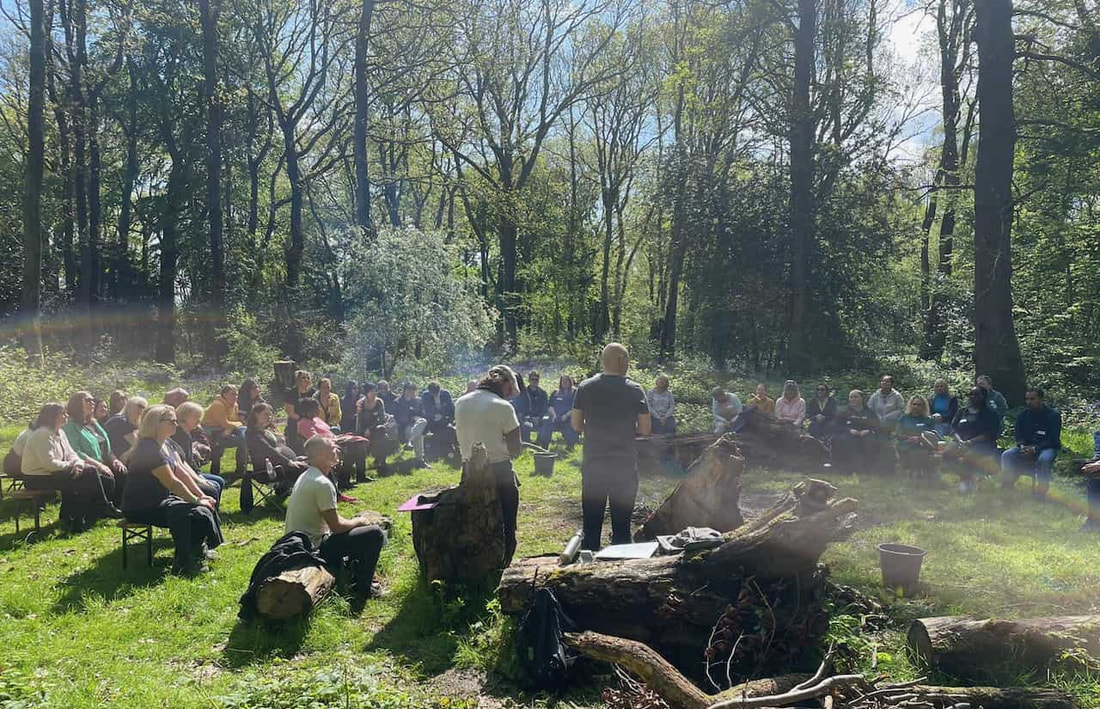
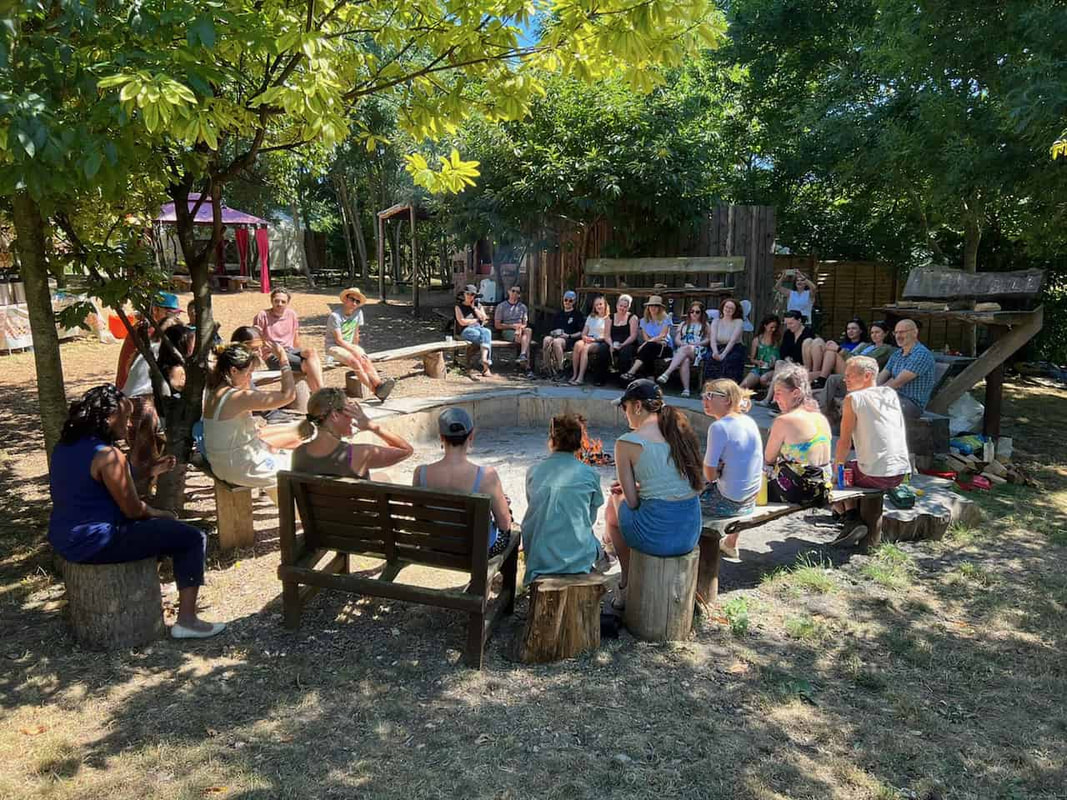
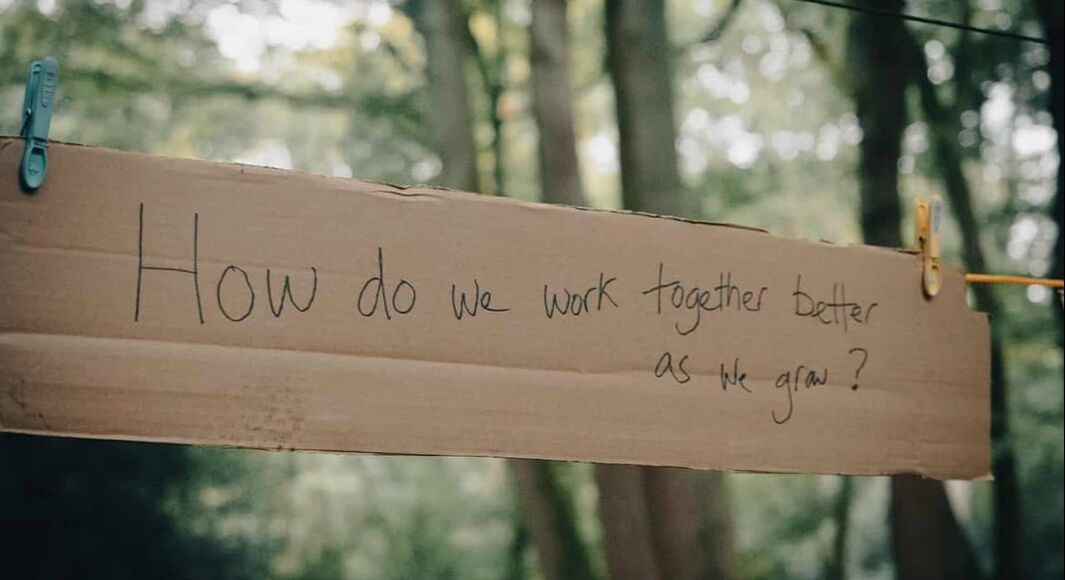
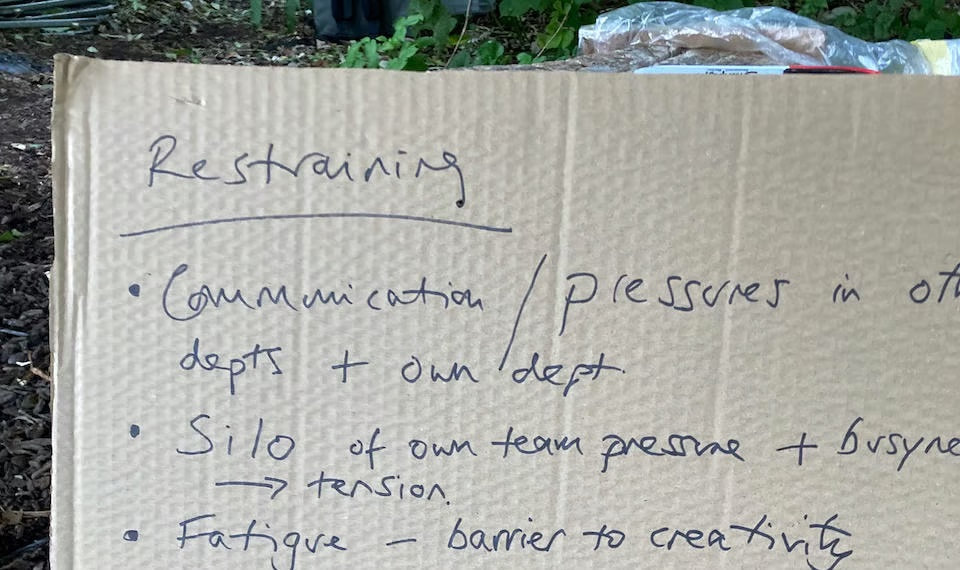

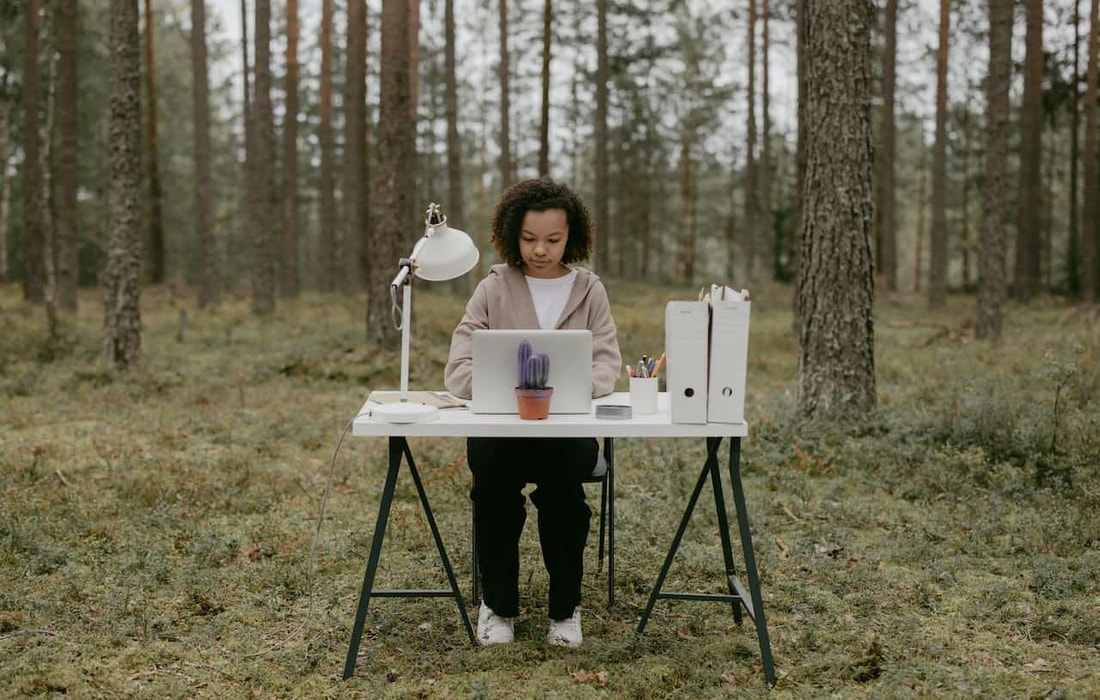
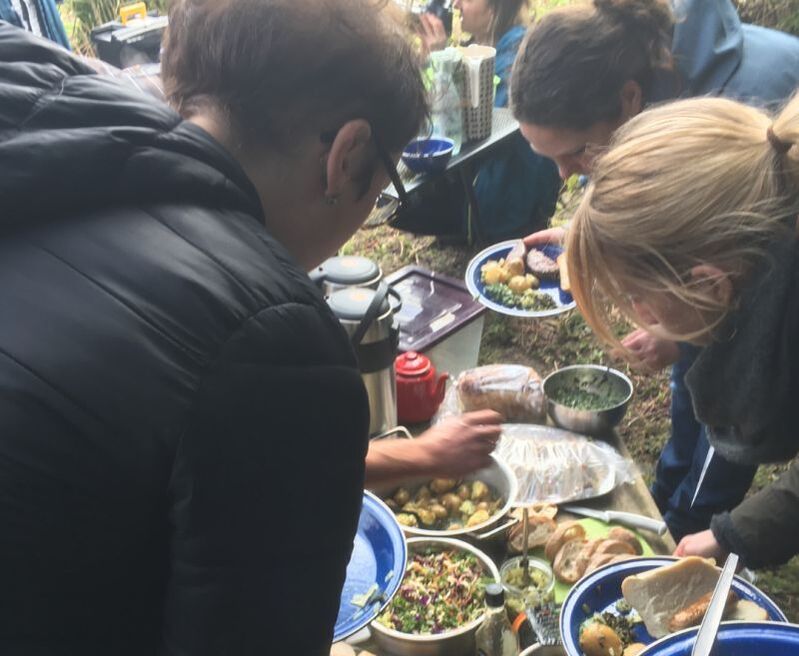
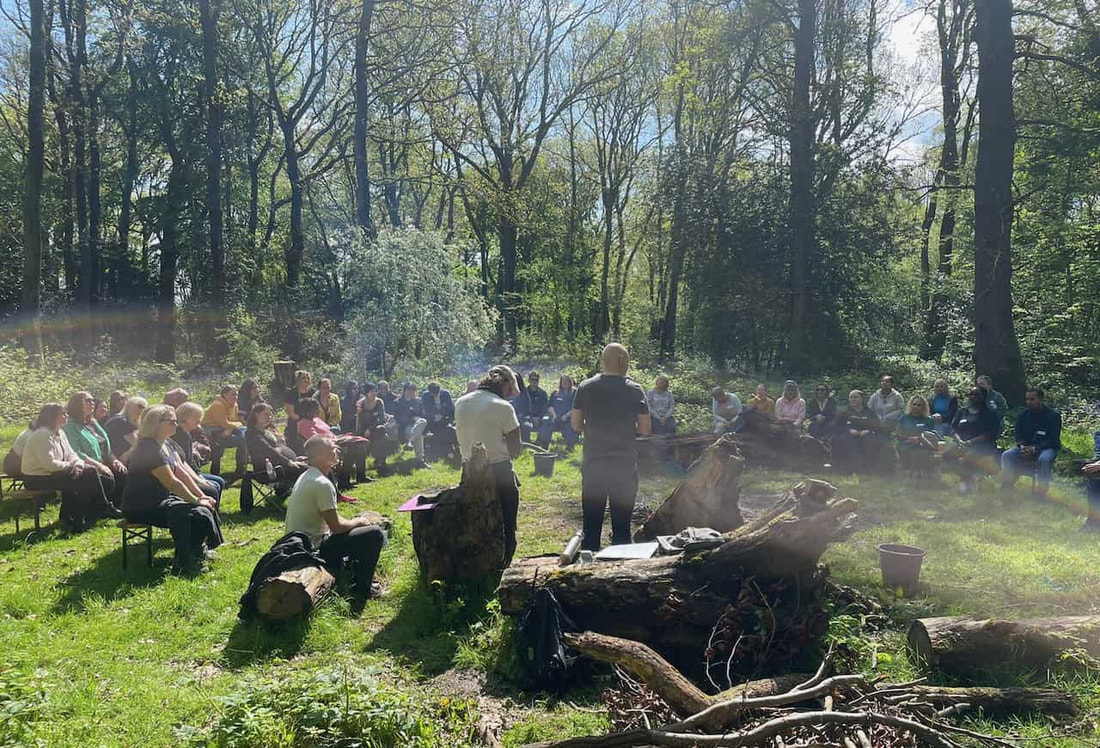

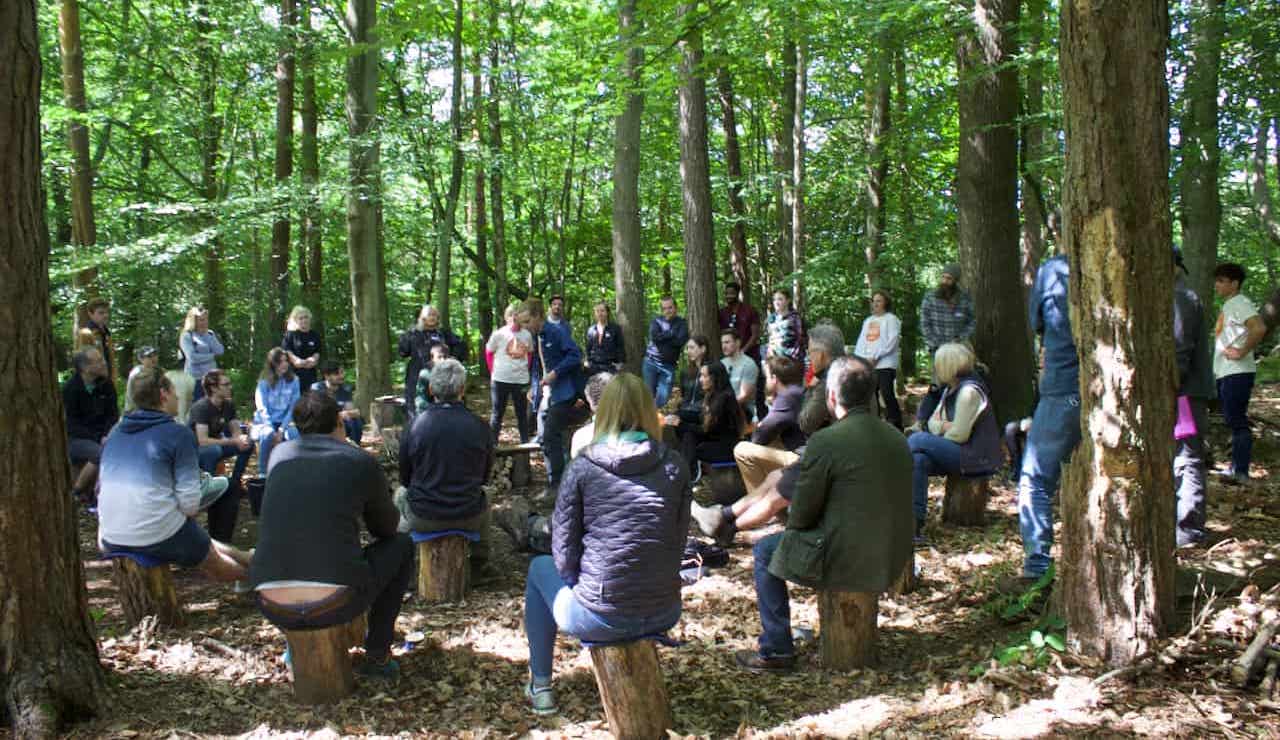
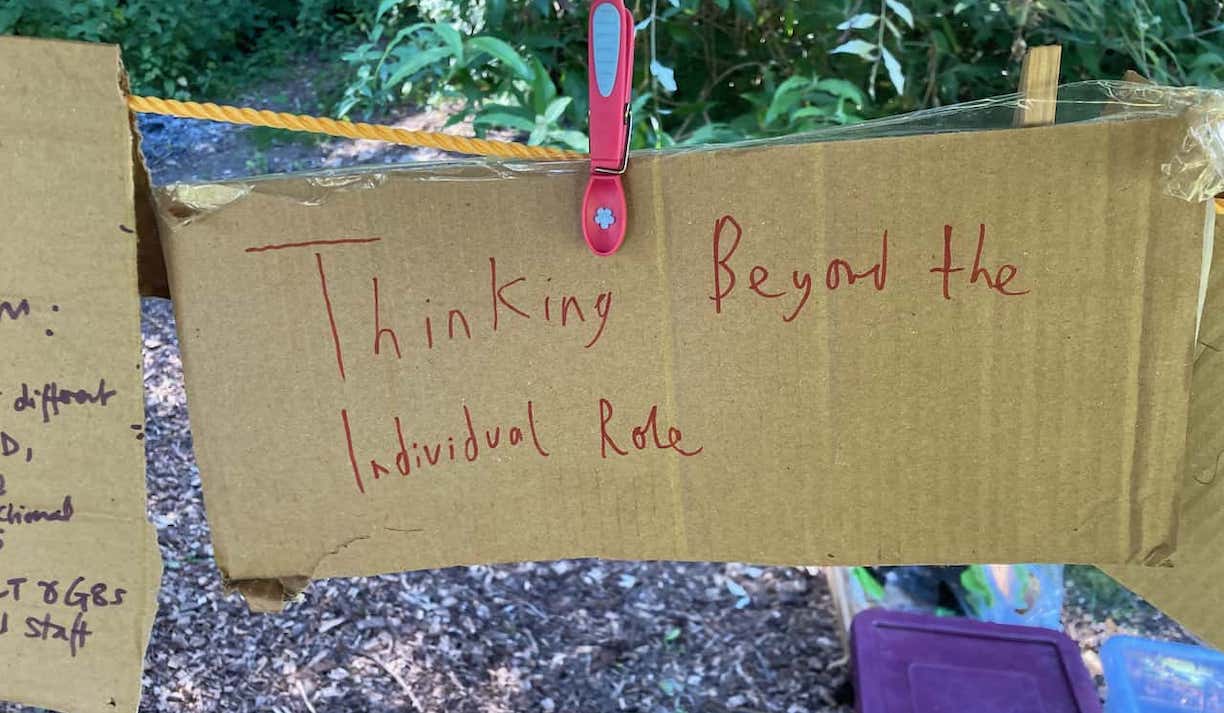
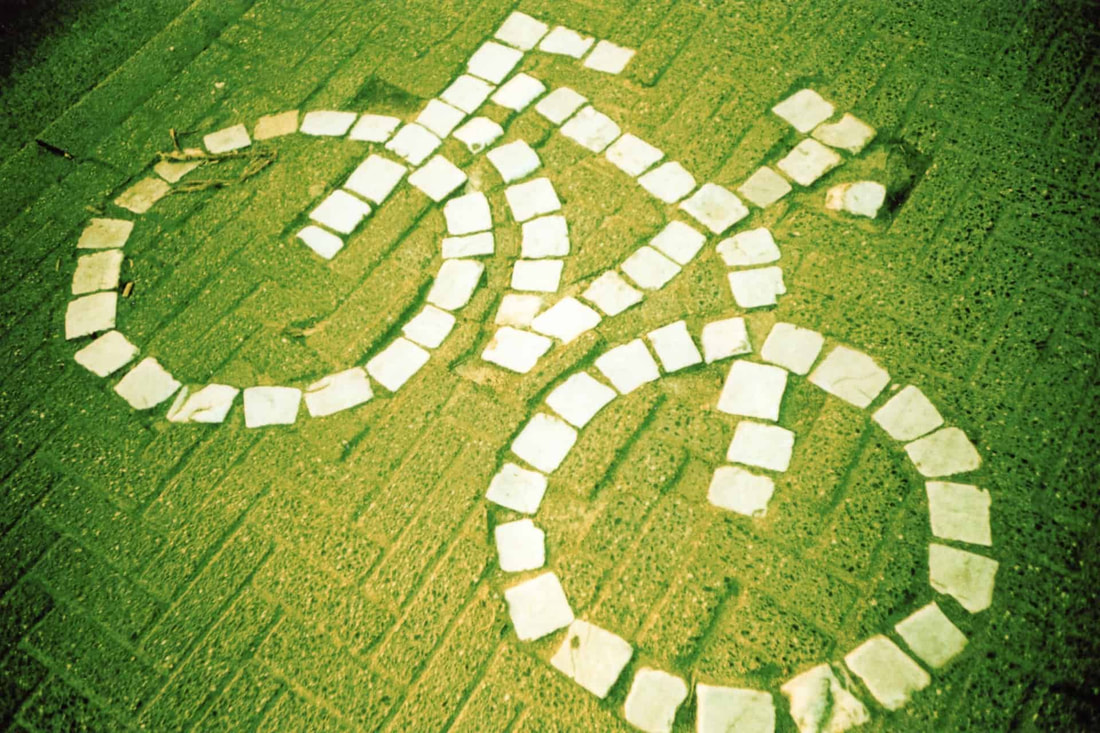
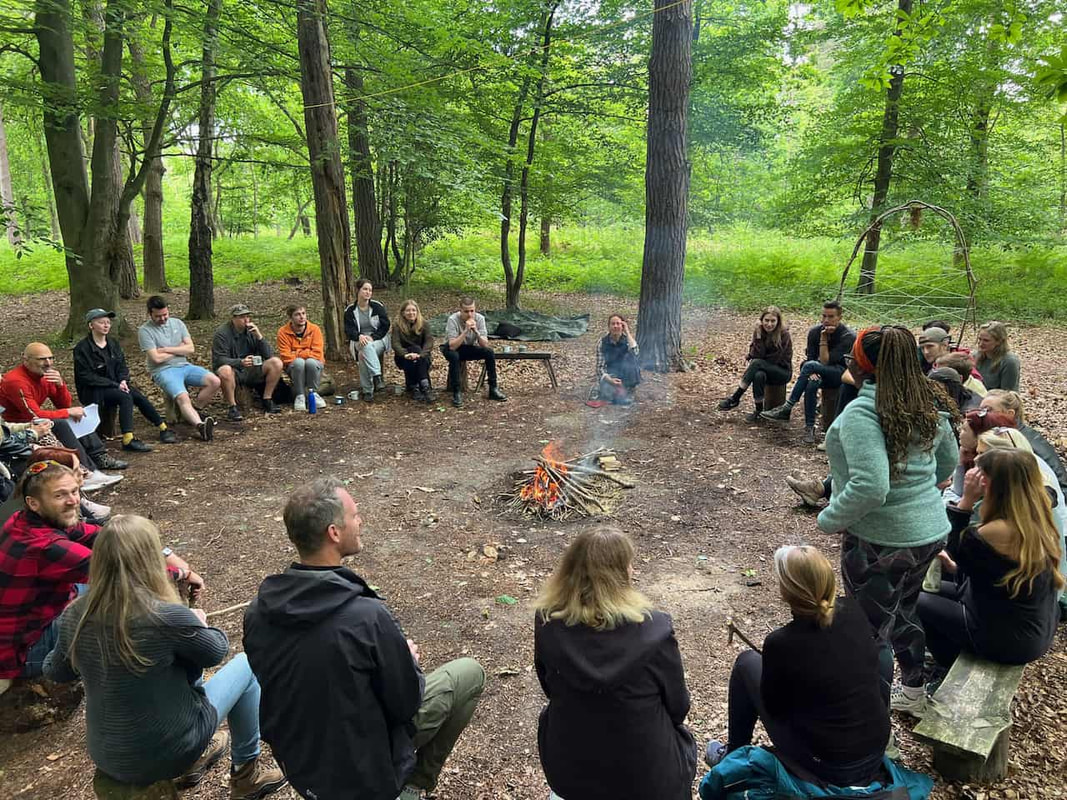
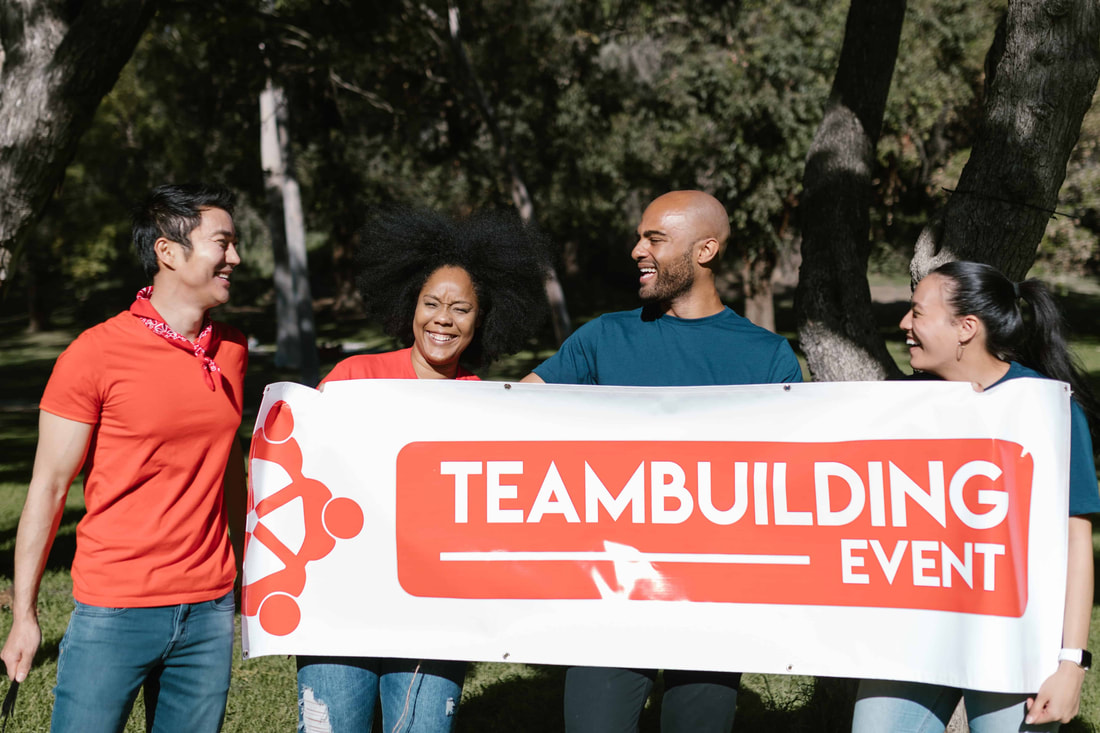




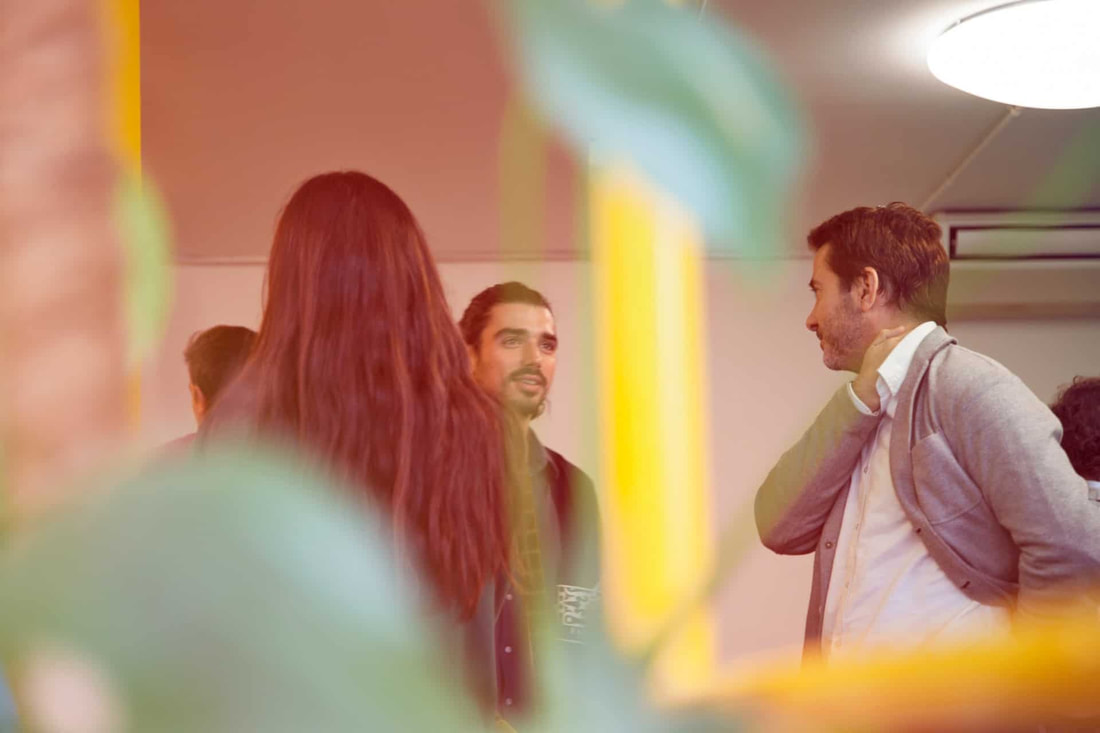
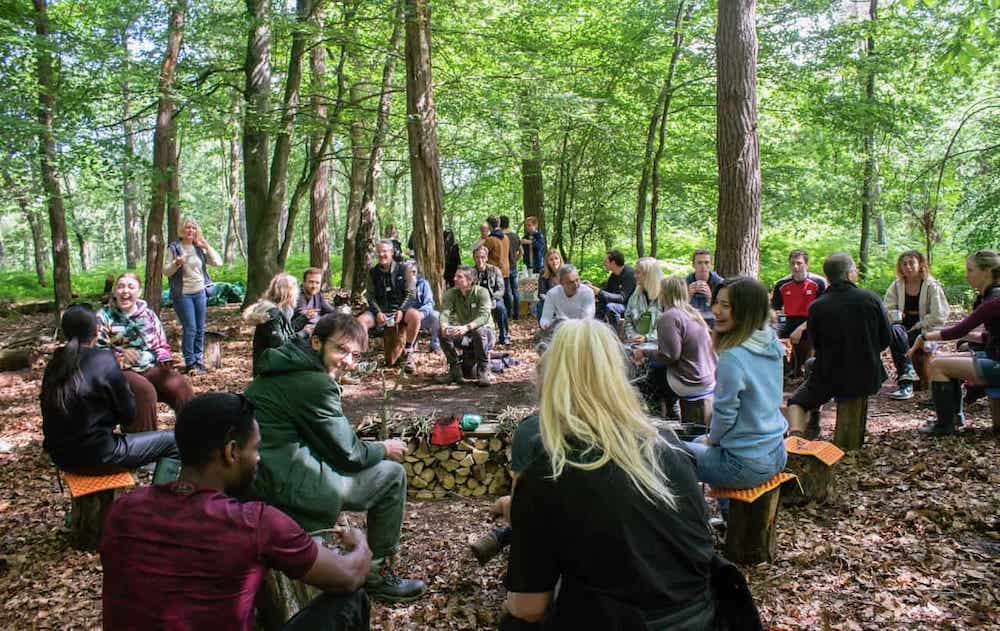
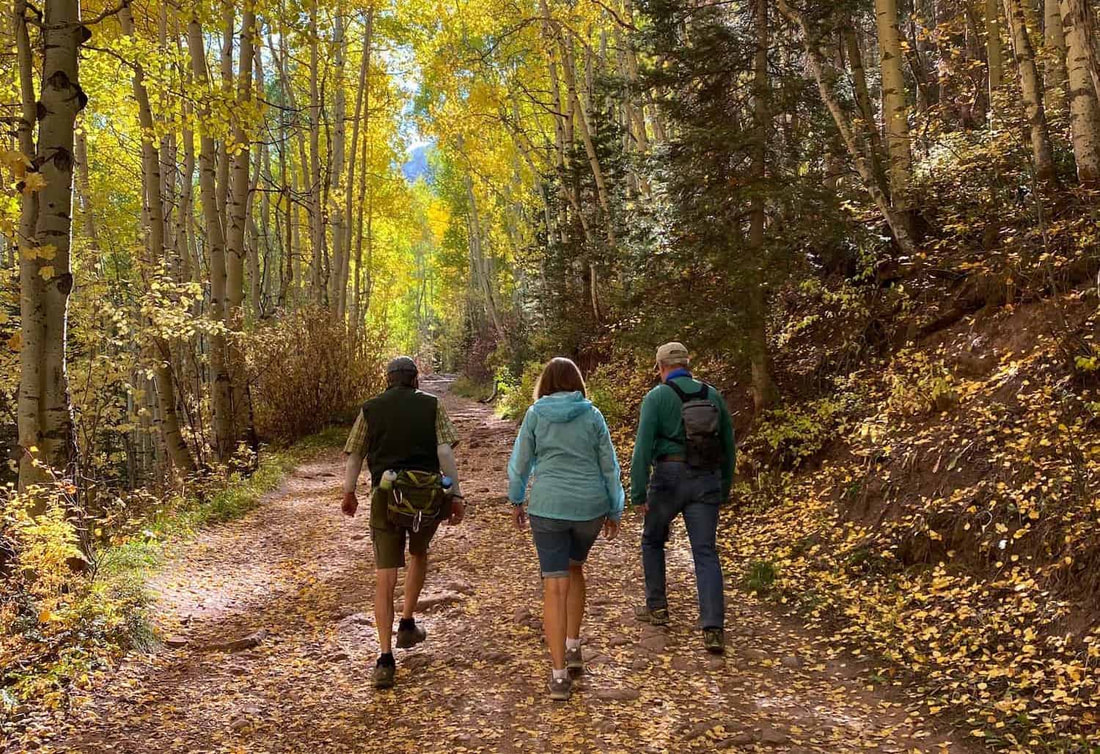
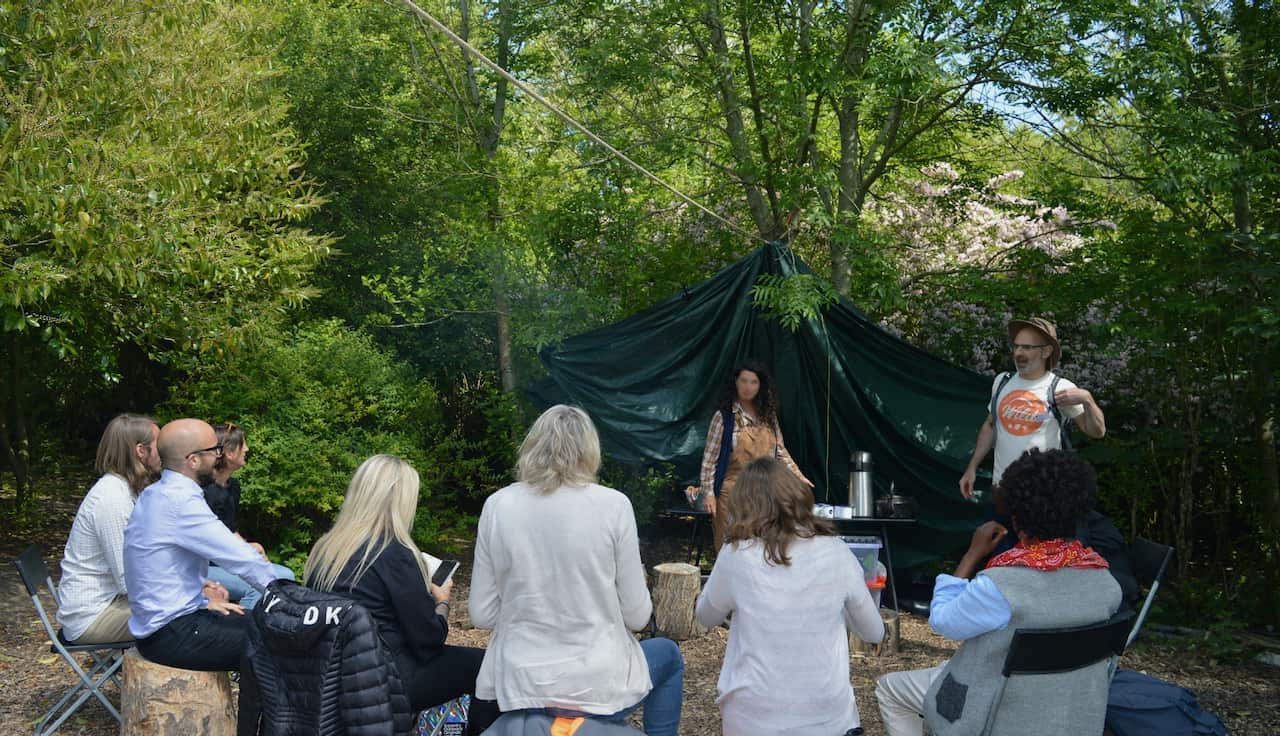
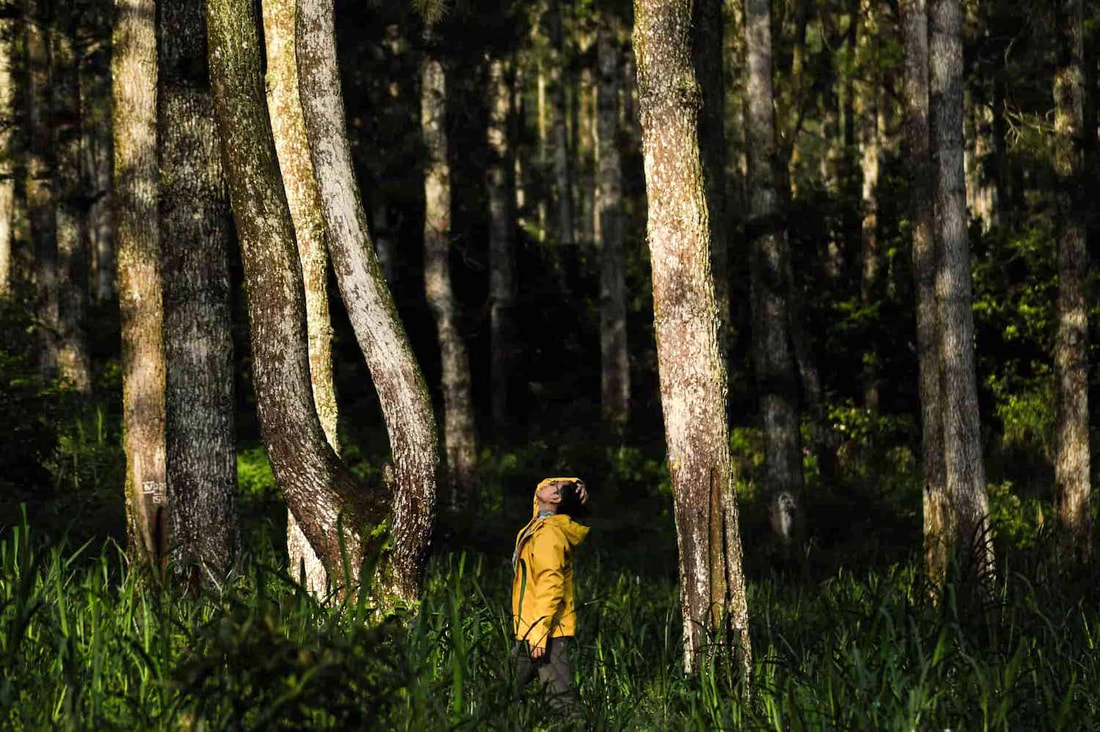


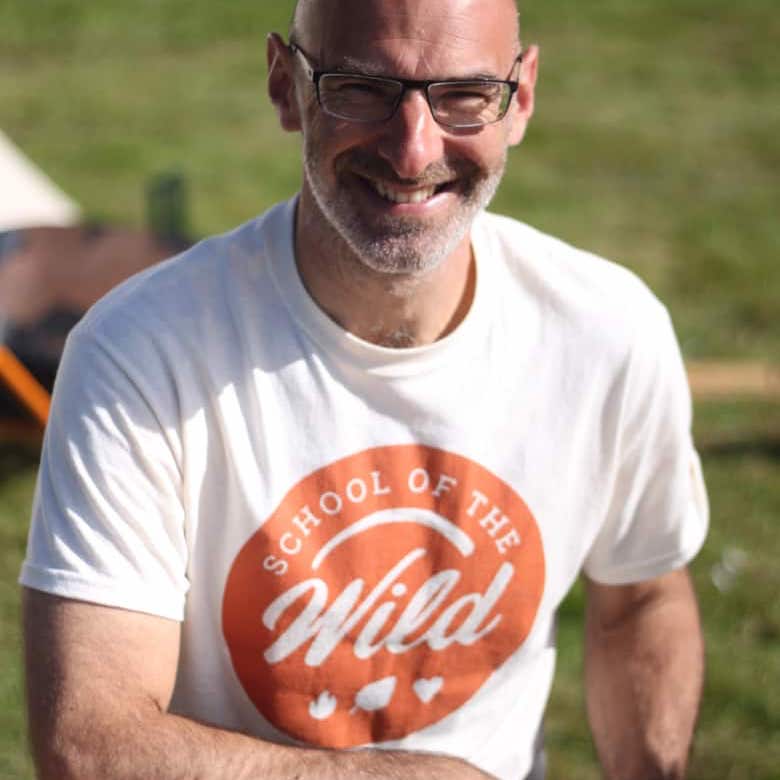
 RSS Feed
RSS Feed



